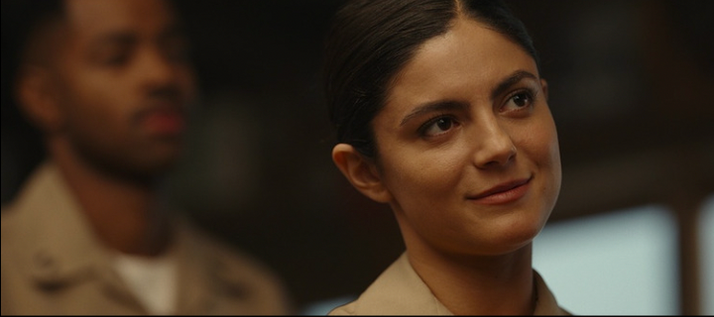
LOGLINE
When a former combat medic meets the hostile brother of his fallen comrade, they realize the survivor's guilt they share is more profound than any differences that divide them.
SYNOPSIS
DYLAN, a former combat medic, finds solace at a local dive bar after attending the memorial service of one of his fallen friends, Jeremy Atkinson. His comfort comes from the drink in his hands and the feelings it washes away. He clearly doesn’t want to speak to anyone, least of all anyone who had any relation to Jeremy, so when two of his comrades, JACKSON and KENNEDY enter the bar, he immediately becomes agitated.
They cross over to where he sits and greet him with wide grins. It’s apparent the two regard him with great respect and humility. Kennedy tells him they tried to catch him after the service and that Jeremy’s mother was asking for him. Noticing his discomfort at the mention of Jeremy’s name, she quickly changes the subject and notes that rehab seems to be going well.
Jackson expresses his gratitude to Dylan for saving his life. Dylan brushes it off, trying to mask his distress at the display of appreciation. Jackson offers him a cue stick, inviting him to a game of pool. Dylan raises his hands in response, revealing he is a quadriplegic.* Dylan tells Jackson and Kennedy he plans on heading out soon anyway.
At that moment, a man named CARTER walks into the bar. Hair, unkempt, hangs over his sunken eyes and his shallow frame indicates a lifelong contempt for his health. Dylan looks to see who it is and his expression immediately falls slack, as if he’s seen a ghost.
Jackson and Kennedy engross themselves in a game of pool. Carter saunters over to where they play, a little too close for comfort. He introduces himself as Jeremy Atkinson’s brother and Dylan’s suspicions are confirmed. All he wants is the floor to open up and swallow him. Kennedy mentions that they didn’t see him in the front row, where the family usually sits. Carter replies and says he didn’t need to be up close to know there was no seat for him.
Carter sits down next to Dylan while Jackson and Kennedy resume their game. He asks if he’s the medic, though something in his tone makes Dylan think he already knows the answer. He proceeds to ask if he saw Jeremy die. Dylan tells him no, but that he was there when the bomb exploded. Carter taunts Dylan, trying to make him admit that Jeremy died bleeding out, insinuating that Dylan didn’t do his job in tying the tourniquet tight enough and that it’s his fault he died.
Jeremy and Kennedy come to Dylan’s defense. An altercation between Jackson and Carter ensues, and Carter gets kicked out of the bar. Dylan, to his own disbelief, follows him out. He finds Carter in front of a mini mart, attempting to light a poorly fashioned Molotov cocktail. When Dylan tells him he’s going to call the police, Carter only encourages him to. Dylan realizes what Carter's truly after — a prison sentence. How else can he rectify being alive over his brother? When Dylan tries to stop Carter from destroying his life, he gets a knife to his throat. Instead of resisting, Dylan presses in. Despite how he defended himself in the bar, deep down he feels responsible for Jeremy’s death.
Carter drops the knife, his pretense shattering. Dylan sees Carter’s self-destructive behavior is due to the same guilt he’s feeling. They both believe they are deserving of punishment for having survived — firsthand and secondhand — the atrocities of war, and that understanding begets an unexpected truce.
*Please note, our lead actor is a quadriplegic who has very limited function in his hands and wrists, hence why he is still able to drink from a cup as long as it has handles.

"I Watched Friends Die in Afghanistan. The Guilt Has Nearly Killed Me." This is the title of an article in The New York Times that inspired the genesis of BROTHERS. The psychological condition of survivor's guilt has always been a source of intrigue to us and in our pursuit to further understand this complex and often overlooked condition, we felt compelled to write a story about two people wrestling with survivor's guilt and the different ways in which it can affect someone. Our hope is that BROTHERS will bring awareness to the very real and pervasive detriments that war has on the mental health of combat veterans, and that it would speak to anyone who may be suffering in silence.
— Amy & Elizabeth Yin (Writers/Directors)

















